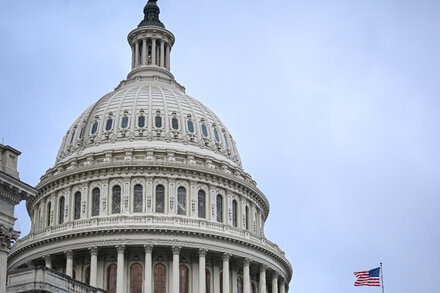The White House is reportedly signaling its consideration of a policy change that could deny back pay to federal employees furloughed during a potential future government shutdown. This move would mark a significant departure from long-standing practice and could profoundly impact hundreds of thousands of federal workers.

WASHINGTON D.C. – The White House has reportedly signaled its consideration of a policy change that could deny back pay to federal employees furloughed during a potential future government shutdown. The move, if implemented, would mark a significant departure from long-standing practice and could have profound implications for hundreds of thousands of federal workers.
Discussions within the administration are said to be exploring options to withhold compensation for periods of involuntary leave, a standard feature of past budget impasses where federal employees typically receive retroactive pay once funding is restored. This potential shift has already begun to draw scrutiny from federal employee unions and members of Congress.
Historical Precedent and Worker Impact
Historically, federal workers who are furloughed during government shutdowns have been guaranteed back pay. This principle was enshrined in law through the Government Employee Fair Treatment Act of 2019, which mandated that all federal employees, including those deemed essential who work without pay, receive back pay once a shutdown concludes. Prior to this, back pay was often granted but required specific legislative action after each shutdown.
The prospect of losing back pay could place immense financial strain on federal employees and their families, many of whom live paycheck to paycheck. During previous shutdowns, many workers struggled to meet basic living expenses, with some resorting to unemployment benefits or temporary jobs. The assurance of eventual back pay offered a crucial safety net.
“Denying back pay would not only be a cruel blow to dedicated public servants but also a dangerous precedent,” stated a representative from a major federal employee union, speaking on condition of anonymity due to ongoing internal discussions. “Our members commit their lives to serving the American people, and to suggest they should bear the financial brunt of political disagreements is unconscionable.”
Administration’s Stance and Rationale
Sources familiar with the internal discussions suggest that the administration’s contemplation of this policy is rooted in a desire to reduce the financial costs associated with government shutdowns and potentially to exert greater pressure on Congress to avoid future impasses. Some within the administration reportedly view the guaranteed back pay as a disincentive for lawmakers to reach timely budget agreements.
While no official statement has been released, the internal discussions highlight a potential shift in how future budget battles might be approached, emphasizing fiscal austerity and accountability, even at the expense of federal workers.
Congressional and Union Reactions
Early reactions from Capitol Hill indicate a likely contentious battle if such a policy were formally proposed. Democratic lawmakers have already signaled strong opposition, vowing to protect federal workers from financial hardship.
“Federal employees are not political pawns,” remarked a senior Democratic aide. “We will fight any attempt to deny them the pay they rightfully earned or were promised. This is a move that would punish hard-working Americans for Washington’s dysfunction.”
Federal employee advocacy groups are preparing for a potential fight, mobilizing their members and engaging with congressional allies. They argue that such a policy would severely damage morale across the federal workforce, potentially leading to a talent drain and undermining the government’s ability to retain skilled professionals.
As the prospect of future budget negotiations looms, the White House’s reported consideration of denying back pay adds another layer of complexity and potential conflict to an already challenging political landscape.
Source: Read the original article here.





